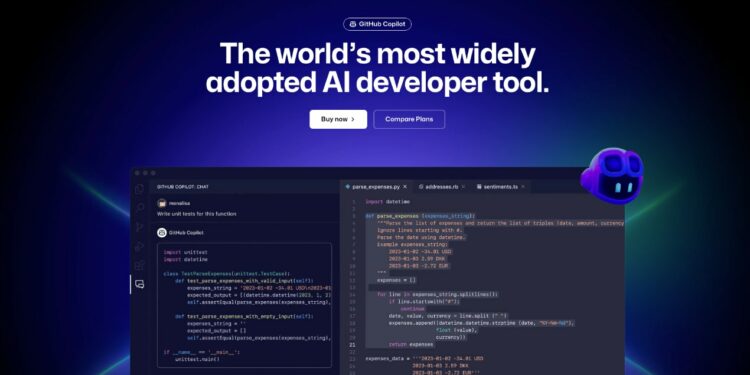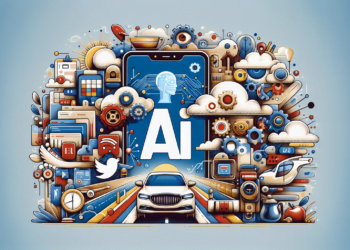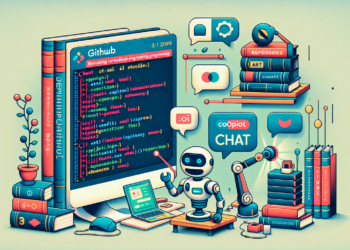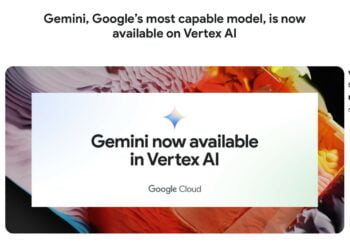GitHub Copilot is an AI-assisted programming tool, designed to enhance efficiency and creativity in the code-writing process. It functions as a virtual coding assistant, suggesting lines of code and entire snippets in real time. Copilot is integrated directly into Integrated Development Environments (IDEs), offering developers a more intuitive and nimble experience.
The Technology Behind GitHub Copilot
Origins and Development
Developed by GitHub in collaboration with OpenAI, GitHub Copilot is based on an advanced language model called Codex, a variant of the famous GPT-3 model. Codex has been trained on a massive amount of public source code available on GitHub, enabling it to understand and generate code in various programming languages.
How It Works
GitHub Copilot uses machine learning to analyze existing code in a project and then generates context-based suggestions. These can range from a simple line of code to entire function blocks, and even more complex algorithms. The tool continually learns and adapts from user interactions and preferences.
Practical Applications
Enhancing Productivity
Copilot has become an indispensable ally for many developers, helping to speed up the coding process, reduce common errors, and explore alternative solutions. Its ability to generate code quickly and accurately allows programmers to focus more on the high-level logic and architecture of their projects.
Education and Learning
For beginner programmers, GitHub Copilot acts as an interactive tutor, providing code examples and facilitating the learning of new languages and programming patterns.
Ethical and Legal Challenges
Copyright Issues
One of the main controversies surrounding GitHub Copilot revolves around copyright and intellectual property concerns. Since it is trained on source code that may be subject to copyright, questions arise about the legality of its generated suggestions and how this impacts the ownership of the resulting code.
Impact on the Profession
There is also a debate on how tools like GitHub Copilot could affect the field of programming. While some view it as a useful tool to enhance efficiency, others express concerns about the possible reduction in the need for detailed coding skills.
The Future of GitHub Copilot
Looking to the future, GitHub Copilot is expected to continue evolving, integrating even more deeply into the software development workflow. The tool has the potential to further transform how developers write, understand, and collaborate on code, as its machine learning capabilities and code generation become more sophisticated.
Conclusion
GitHub Copilot represents a milestone at the intersection of artificial intelligence and software development. By transforming the way code is written and understood, this tool not only enhances efficiency and creativity in programming but also raises important questions about authorship, copyright, and the future of the programming profession. At the heart of Copilot lies the promise of a future in which AI and humans collaborate even more closely to tackle complex problems and create innovative technologies.






















